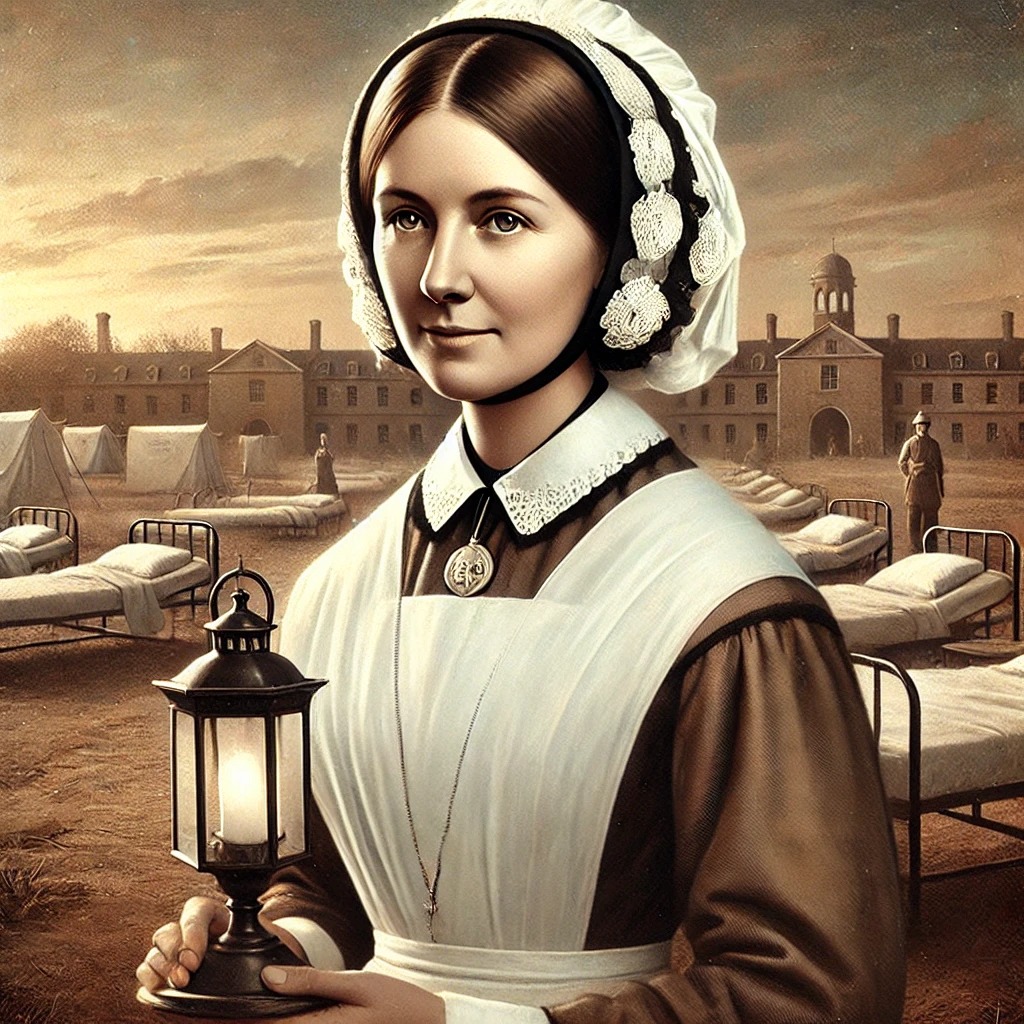In the picturesque city of Florence, Italy, a child named Florence Nightingale was born to a wealthy and educated British family. From a young age, Florence exhibited a profound sense of compassion and a calling to care for others, much to the consternation of her parents, who envisioned a more traditional role for their daughter.
Despite societal expectations, Florence pursued her passion for nursing, a profession that, at the time, was poorly regarded and largely untrained. She studied nursing in Germany and later in Paris, gaining invaluable skills and insights. Her opportunity to make a significant impact came with the outbreak of the Crimean War in 1853.
Florence assembled a team of nurses and traveled to the British base hospital in Scutari, Turkey. She found appalling conditions: overcrowded, unsanitary, and lacking basic supplies. With relentless dedication, Florence and her team transformed the hospital environment. She implemented rigorous hygiene practices, organized proper nutrition, and ensured that soldiers received compassionate care. Her efforts drastically reduced the death rate and earned her the enduring nickname “The Lady with the Lamp” for her nighttime rounds to tend to the wounded.
Florence’s impact extended beyond the battlefield. Upon her return to England, she advocated for healthcare reforms and established the Nightingale Training School for Nurses in 1860. Her pioneering work in statistics and public health laid the groundwork for modern nursing practices and hospital management.
Florence Nightingale’s legacy as the founder of modern nursing is monumental. Her unwavering commitment to healthcare, her pioneering spirit, and her compassionate care have inspired generations of nurses and transformed the medical profession.
Subscribe to Updates
Get the latest creative news from FooBar about art, design and business.
Previous ArticleHarriet Tubman (1822–1913, USA)
Related Posts
Add A Comment



